Litter-picks
Please complete the link above to register your litter pick, for all equipment hire and to book litter collection.
Any hired stocks are limited and equipment is offered on a first-come, first-served basis, so please submit your request at least ten working days before your event.
Each group can borrow a maximum of 20 pieces of equipment.
If we are able to provide any equipment for hire, you will receive a confirmation. The equipment will be delivered to the address provided in the form you submitted.
Guidance for Volunteer Litter Pickers
Individuals and groups acting as volunteer litter pickers can be exposed to a number of easily avoidable hazards. Before you take part in any litter pick we ask that all volunteers read this guidance to make their involvement safe and enjoyable.
+ Protective Clothing and Equipment
- The following items should be used at all times by volunteers undertaking litter picks:
- Reflective hi-visibility waistcoats to clearly highlight volunteers to traffic and pedestrians.
- Litter pickers to avoid direct contact with litter and repetitive bending.
- Gloves to minimise contact with and noxious or dangerous materials.
- Suitable footwear and clothing
- Reflective hi-visibility waistcoats and litter pickers can be provided by the Council, subject to availability.
+ General Site Safety and Inspection
- Litter picking of areas beside roads should be carried out with extreme caution due to the risk of being struck by vehicles. Therefore we request that you do not litter pick on a road that has a speed limit over 40 mph.
- Litter picking should be restricted to only where there are wide verges or pavements, suitable for pedestrians, and should be carried out facing oncoming traffic. It is essential that volunteers are visible to road users, for that reason, hi-visibility waistcoats must be worn and litter picks should only take place in clear daylight.
- Volunteers should not attempt to clear litter from the carriageway.
- Avoid reaching into hedges or undergrowth in such a way as to expose the face, eyes and skin to scratches from thorns or branches. If an item of litter cannot be safely reached with a litter picker, leave it.
- Avoid working close to rivers or on steep slopes, as there is an increased risk of slips and falls. When working close to ditches, avoid reaching into the ditch to remove litter, unless it can be safely reached with a litter picker.
- Be mindful of wildlife. In the spring time avoid disturbing animals and birds that may be nesting and in the summer time be wary of wasp and bee nests.
- Do not enter an area, or attempt to litter pick an area, where works are restricted (for example road works) or where the public do not have a right to entry. Do not enter private land or property to remove litter.
- The level of risk will vary at each location, so prior to commencing a litter pick, it is recommended that a visual site inspection and risk assessment is carried out to establish the above risks and to identify and note other possible hazards.
- Volunteers have a duty towards themselves, fellow volunteers and the public to work safely. If there is any doubt about the safety of a site or material, then it should be avoided.
+ Lifting and Handling Materials
Volunteers should be aware of the risk of injury by carrying bags of collected litter and attempting to lift and carry heavy materials.
To avoid injury, the following basic principles of manual handling should be applied:
- Use litter pickers to prevent constant bending and stretching.
- Make sure an item is safe to handle with no sharp edges or noxious contents.
- Decide if an item can be safely moved either by one or two people.
- Only try to move an item if this can be done so without straining.
- When lifting an item, bend the legs and keep the back straight
+ Collection and Disposal of Litter
Volunteers are asked to re-use supermarket carrier bags, or similar, to collect litter, as this does not involve an additional cost to supply bags and it is environmentally friendly to re-use these bags. It also ensures that the volumes of litter collected are manageable to handle.
Where possible, litter collected should be disposed of by volunteers through their own refuse/recycling collections. If this is not possible, then volunteers are asked to take the litter to their nearest Household Waste Recycling and Centre.
Volunteers are not expected to separate recyclable items of litter, but if they are willing to do so this, it would be welcomed. The recyclable items should be added to the volunteers’ recycling bin (where clean and acceptable) or taken to their nearest recycling point.
For one-off litter picks, where larger quantities of litter are likely to be collected, the Council can supply bags and arrange for the litter collected to be disposed of after the event. Please note this will be at a pre-agreed location by a public litter bin. We will not collect from residential properties.
+ Young Volunteers
+ Loaning of Equipment
We are once again able to hire out equipment to any group or individual that wishes to conduct a litter pick in their area. You can request to hire litter picking equipment via our online form.
Volunteers should not participate in litter picks unless they understand and accept that participation is entirely at their own risk. Volunteers are not working for, or on behalf of, Ashford Borough Council, therefore the Council will not be held responsible for any loss, damage or inconvenience caused as a result of the actions and omissions of volunteers or this guidance.
If you are concerned about litter in a particular area, then please report this concern to us via the Report page.
Frequently Asked Questions
+ Who does Ashford Borough Council loan equipment to?
+ What equipment can I borrow?
+ How do I dispose of the collected litter?
+ What precautions should I take to keep people safe?
Litter picking can be hazardous. We advise you to undertake a full risk assessment before the event, which includes both the area to be cleaned and any limitations of those taking part; you can then put measures in place to reduce or remove any risk.
Protective clothing should be worn. We recommend that you arrange public liability insurance too. We do not support any event that involves litter picking on public roads where the speed limit is greater than 30 miles per hour. All our equipment is checked before being loaned but it would be sensible for you to check again as you hand it out.







